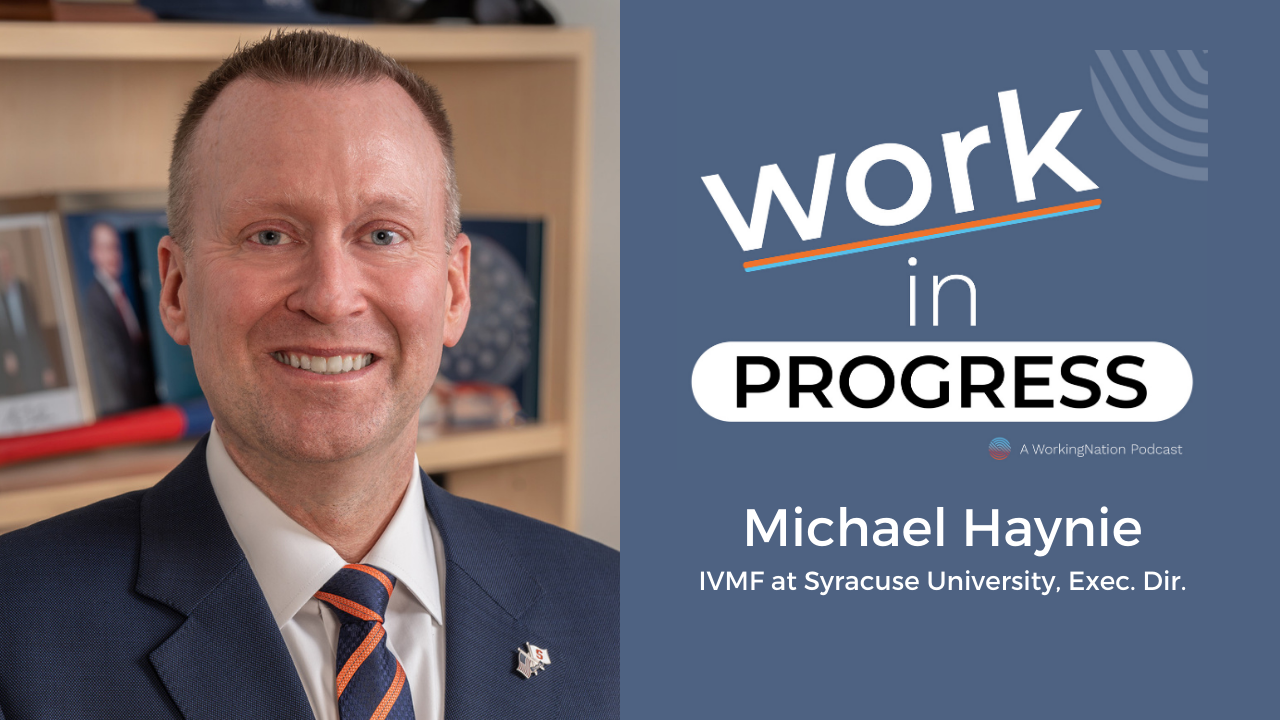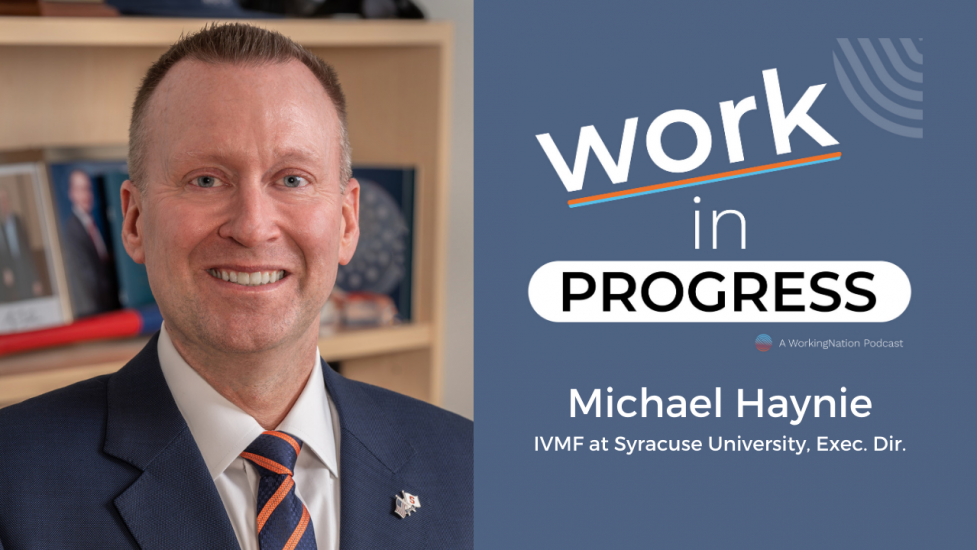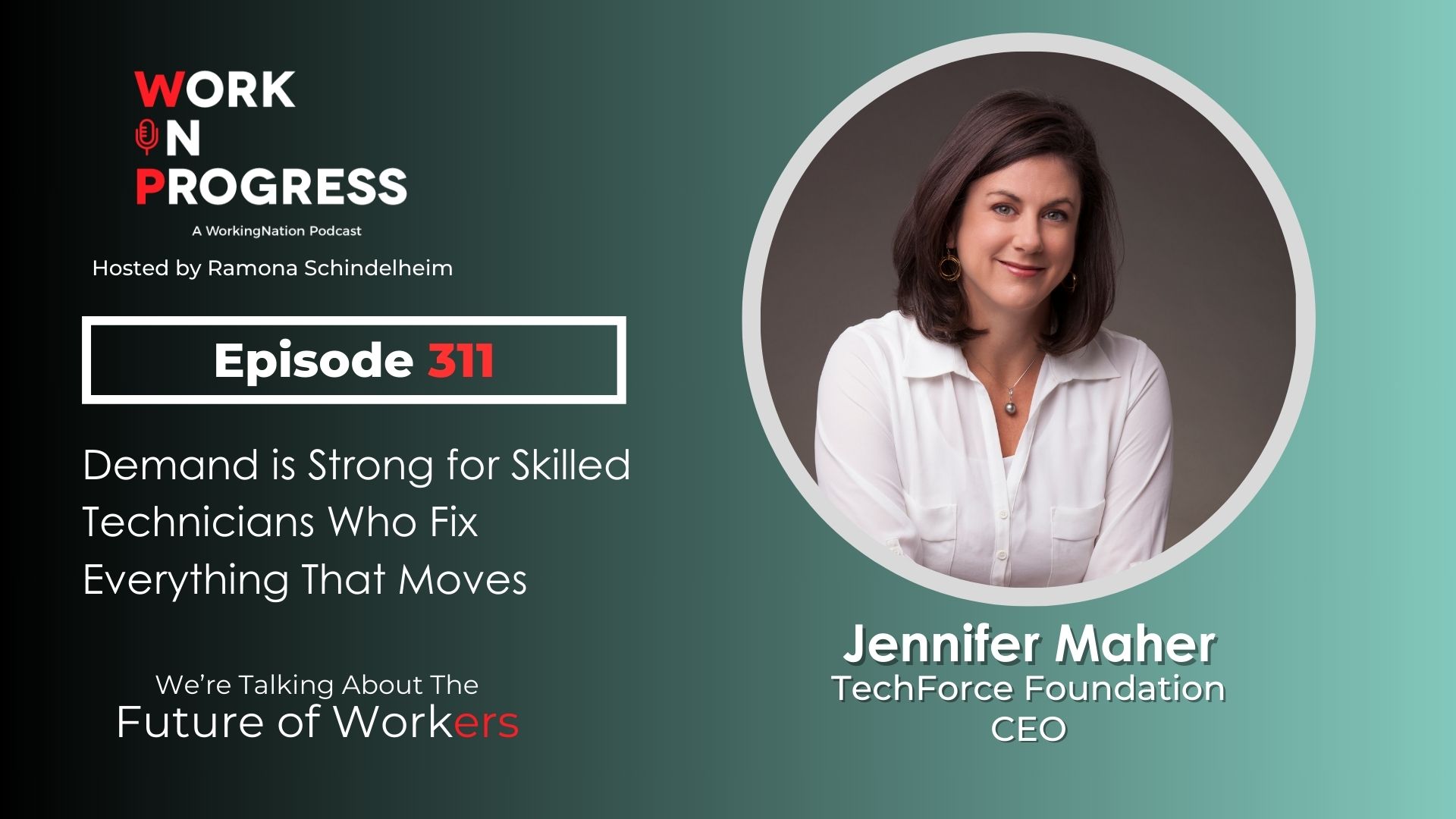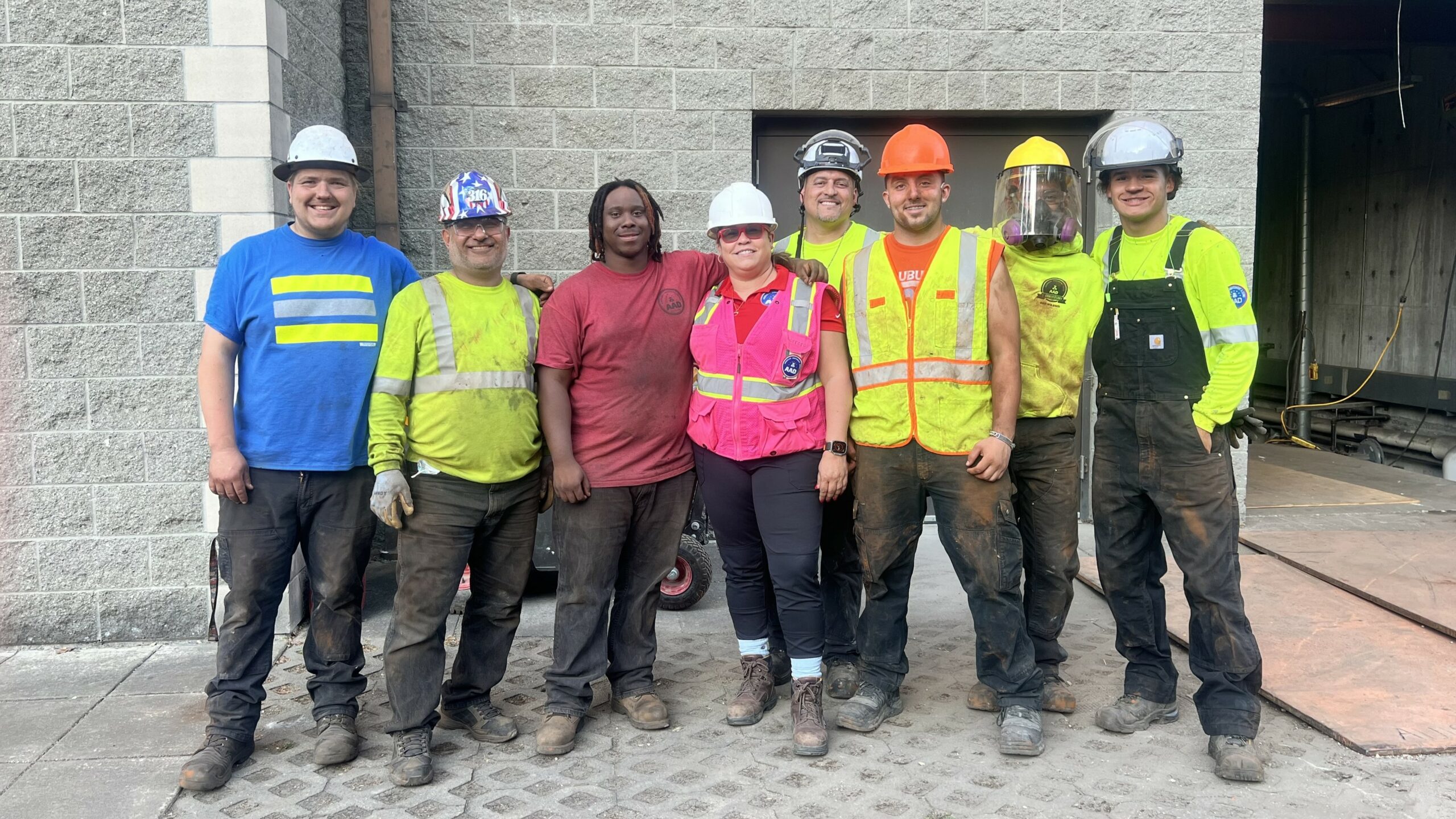Podcast: Play in new window | Download | Embed
Subscribe: Apple Podcasts | Google Podcasts | Spotify | Pandora | Youtube Music | RSS
As WorkingNation wraps up its November deep focus on veterans and work, this episode of the Work in Progress podcast looks at the role a Syracuse University-based initiative has played in bridging the gap between military service and civilian work for tens of thousands of men and women for almost a decade.
Since 2011, the Institute for Veterans and Military Families has been helping service members, former service members, and their spouses find their path to a successful civilian career through entrepreneurship boot camps and other initiatives, on and off campus.
Michael Haynie is the founder and executive director of IVMF and vice chancellor of Strategic Initiatives & Innovation at Syracuse. He’s also a veteran, having spent 11 years in the U.S. Air Force before getting a PhD in entrepreneurship and business strategy and joining the faculty at the university.
“I came here to be an entrepreneurship professor, but shortly after I arrived I recognized in a way I hadn’t before the unique opportunity to leverage the intellectual capacity of higher education to address some pressing issues and concerns facing veterans and military families,” Haynie explains in this episode of the Work in Progress podcast.
In particular, he says, he realized that as an entrepreneurship professional he was in a position to “solve issues and challenges, and address barriers facing veterans making the transition to civilian life, particularly in the case of veterans with disabilities. We could leverage business ownership to create a vocation path for veterans that may face barriers to traditional employment because of a disability.”
That first program—the entrepreneurship boot camp—was built and created particularly for veterans with service-connected disabilities but has expanded over the years to include all veterans and military spouses.
“It’s a soup to nuts immersion experience about launching and growing a business. The program starts with some online content for about a month. It’s really a level-setting, given the variety of past education, as well as entrepreneurial aspirations, that our veterans come to us with,” Haynie explains.
“Then after that, we actually bring them physically to the university—and 10 university partners across the country—for an eight-day immersion experience in business ownership that takes them through the steps and stages of launching and growing a sustainable business venture.”
Read more: Entrepreneurship Boot Camp Helps Veterans Start Their Own Businesses
Addressing the Demand for Upskilling and Credentialing
The Institute today runs a whole portfolio of programs focused on supporting the vocational transition from military to civilian life.
“Onward to Opportunity (O2O) is very specifically an upskilling and reskilling program designed to put labor market connected credentials and certifications in the hands of transitioning service members and veterans as a means to bridge that military experience to the civilian world of work. I have to give Howard and Sherry Schultz and the Schultz Family Foundation a lot of credit here. This is a program that they helped us launch.”
Haynie says there are upwards of 50 different learning pathways across multiple industries, all leading to a credential of certification. One of them is around program management.
“The outcome of that learning pathway is the PMP certification program management professional certification. We also have certifications in the communication space in human resource management, cybersecurity, and more. But importantly, all of those learning pathways are informed by our research with the nation’s employers about where there is labor market demand. What this program does is try to create opportunities for our transitioning service members to leverage that labor market demand via a credential that makes them employable where the nation’s employers are hiring.”
The program is five years old and it’s more than surpassed their goals for enrollment. “Our aspirations when we launched that program were to maybe enroll a thousand veterans a year. Today, we’re enrolling more than a thousand veterans a month in that particular program,” according to Haynie.
“You can access it two ways. If you prefer a residential experience and in-person learning, we offer this program on 65 military installations to service members who are making the transition. If your situation is such that you can’t enroll in in-residency model, you can access the entire program online. So, we have service members, in places like Iraq and Afghanistan that are waking up in the middle of the night to participate in some of our sessions, but we also have classes happening on military installations in San Diego, and San Antonio, in Jacksonville, in Kansas City, and all over the United States.”
Haynie and I also discuss the importance of addressing the unique work and career challenges that military spouses face, especially given that they are moving from base to base every three years at minimum.
You can listen to the entire podcast here, or download it wherever you get your podcasts.
Download the transcript of this podcast here.
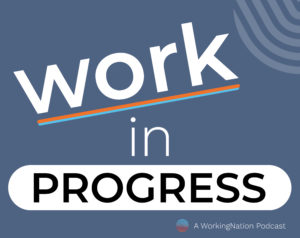
Episode 157: Michael Haynie, Institute for Veterans and Military Families executive director and founder
Host: Ramona Schindelheim, Editor-in-Chief, WorkingNation
Producer: Larry Buhl
Executive Producers: Joan Lynch, Melissa Panzer, and Ramona Schindelheim
Music: Composed by Lee Rosevere and licensed under CC by 4.0.
You can check out all the other podcasts at this link: Work in Progress podcasts

